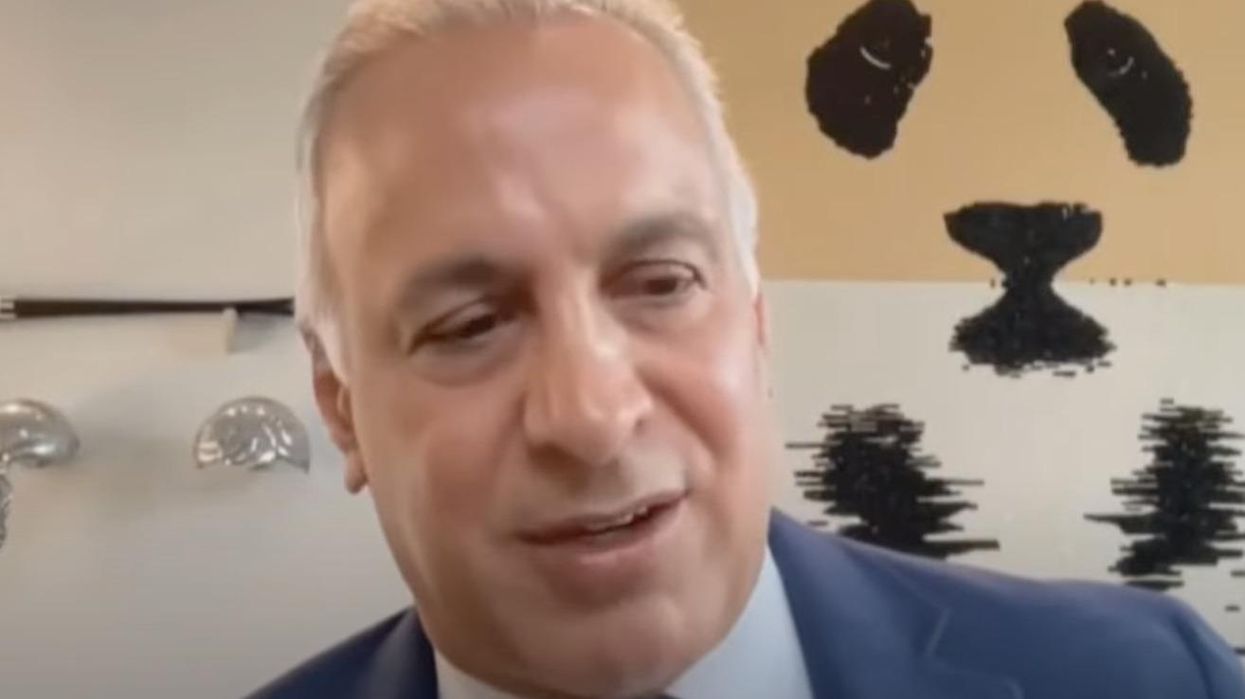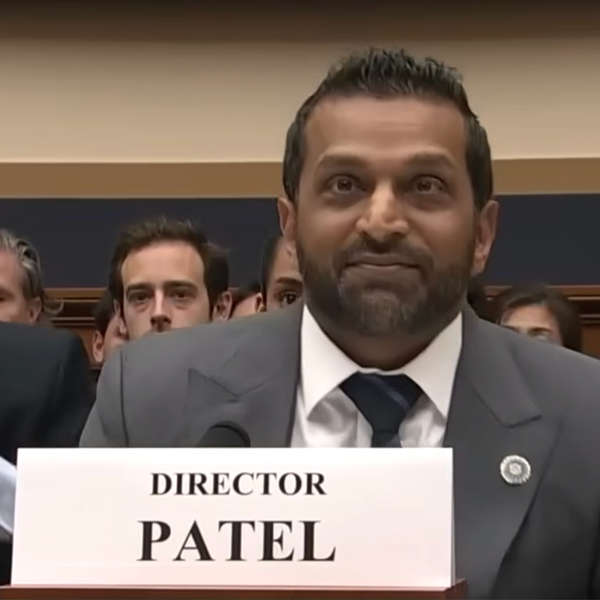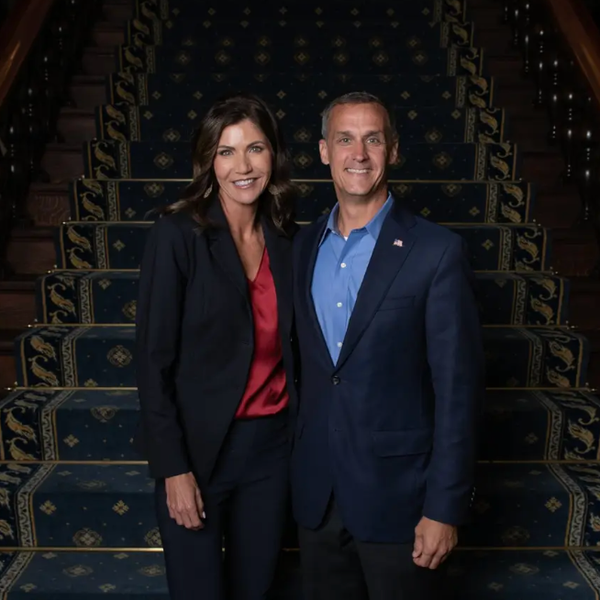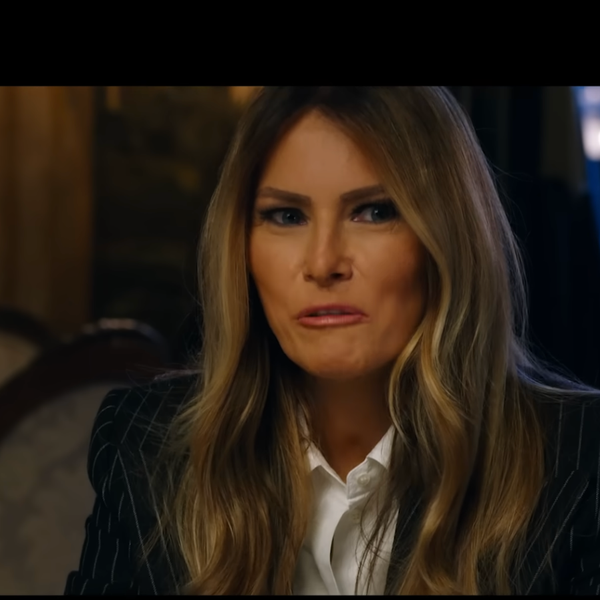Former White House Lawyer Warned Trump Against Illegally Keeping Documents
A new report suggests former White House counsel Eric Herschman warned Donald Trump in late 2021 that if he failed to return presidential records or classified materials he had retained after leaving office, the 45th president could face serious legal trouble.
The New York Times was the first to report the development, citing three unnamed sources familiar with the matter.
Herschmann was no longer working for Trump by the time this conversation reportedly occurred in December 2021. An exact date for the meeting was not confirmed. Trump had been out of the White House for almost a year by that point, however, and though it is unclear whether Herschmann was aware of precisely what records Trump had retained, he still felt the need to offer the caveat. Trump’s response to Herschman’s warning was allegedly “noncommittal” but courteous.
The warning likely didn’t come as a total surprise.
By the time Herschmann had offered his input, the National Archives had already informed Trump that it was missing a number of original documents from his time in the White House.
Some two dozen boxes of presidential records that were meant to go to the Archives in January 2021 didn’t. Instead, they were shipped off to Trump’s residence at Mar-a-Lago. This happened against the advice of Pat Cipollone, another White House attorney under Trump.
By January, the former president handed over some 15 boxes to the Archives from those he had sent to Mar-a-Lago. There were 184 classified records inside, But by May 2021, the National Archives was still trying to find other key records that appeared to be missing. Gary Stern, the Archives lead counsel, fired off letters to Trump’s attorneys and emphasized that all presidential records must be accounted for.
A back-and-forth over the documents continued. By the autumn of 2021, according to sources who spoke to The Washington Post, former deputy White House counsel Pat Philbin told the Archives that it was Mark Meadows, Trump’s onetime chief of staff, who had reassured him the documents Trump took were only inconsequential news clippings and nothing more.
But the Archives believed there was more than news clippings missing. The Archives had already informed Trump’s team by then that it was looking for specific records, like his letters with North Korean dictator Kim Jong-un, a letter left for him by former President Barack Obama, and, among other things, the National Weather Service map from 2019 that Trump drew on with a Sharpie marker when falsely proclaiming that Hurricane Dorian was going to hit Alabama after the National Weather Service had reported otherwise.
Around the time Herschmann reportedly offered his warning to Trump in December 2021, Trump’s team informed the Archives it had 12 boxes at Mar-a-Lago waiting to be picked up. The Archives went to retrieve them in mid-January 2022. Archive aides found 15 boxes and within weeks of reviewing all that Trump had kept, the Archives asked the Justice Department to get involved.
Many of the records that the Archives found inside the boxes at Mar-a-Lago were labeled classified. The agency was unsure to what extent documents were mishandled and an investigation got underway. This June Trump remitted more classified documents through his attorneys but it was suspected by investigators that there were more records yet to be unearthed at Mar-a-Lago.
They were right.
A search warrant was issued to the FBI, and on Aug. 8, agents picked up more than 100 new documents with classified or sensitive markings from Mar-a-Lago. The FBI said it seized roughly 11,000 documents without classified markings altogether. In its warrant, authorities cited a possible violation by Trump of the Espionage Act and noted that “evidence of obstruction” into the investigation for the classified records also likely existed.
Trump has spent every week since tossing out excuse after excuse for his retention of the classified records. He has also insisted that he had stand-alone power to declassify documents.
This is not possible according to most legal and national security experts in the U.S.
This has not stopped Trump from claiming the investigation into the missing classified records is a “witch-hunt” or yet more political persecution against him by the “deep state.”
Herschmann’s legal relationship with Trump has never been dull, to say the least.
Herschmann defended Trump during the former president’s first impeachment trial for abuse of power and obstruction of Congress and left a lucrative partnership at the law firm Kasowitz Benson Torres to do it. Financial disclosures from 2020 show Herschmann was earning just over $3.3 million when he took on the advisory role for Trump.
When Trump and his personal attorneys and advisers like Rudy Giuliani and John Eastman pushed to overturn the results of the 2020 election ahead of Jan. 6, Herschmann was one of the few resistant voices inside Trump’s immediate orbit.
Upon cooperating with the Jan. 6 committee’s probe, Herschman said under oath that he had candidly warned officials about the legal danger underpinning schemes to overturn the election results.
One of those warnings went to Jeffrey Clark, a mid-level lawyer and former Trump lackey at the Department of Justice.
Clark, Herschmann testified, had revealed a plan to him that would see Clark installed as attorney general with Trump’s blessing if only Clark could get letters sent off to swing state legislatures falsely claiming that voter fraud had altered election results.
“I said good… fucking a-hole… congratulations. You’ve just admitted your first step or act you’d take as attorney general would be committing a felony in violation of Rule 6 (c),” Herschmann recalled telling Clark.
Herschmann was subpoenaed by a federal grand jury this summer along with former White House lawyers Pat Cipollone and Patrick Philbin. According to the Times, Herschmann engaged with Trump’s attorneys Evan Corcoran and John Rowley, asking for guidance on how he might field questions that could run afoul of executive privilege or attorney-client privileges.
Herschmann was told to assert executive privilege broadly. Corcoran then allegedly told him not to worry because a “chief judge” would “validate their belief that a president’s powers extend far beyond their time in office.”
So far, Cannon has ruled in favor of Trump and to some outrage from seasoned jurists and prosecutors.
On Sept. 15, Cannon rejected the Department of Justice’s request to keep investigating Trump’s handling of classified records while an independent “special master” or arbiter, was assigned to review records. Andrew Weismann, a former attorney who worked on Special Counsel Robert Mueller’s probe of Russian interference in the 2016 election, for one, has dubbed Cannon’s decision as profoundly “stupid” and “partisan.”
The special master’s role primarily involves filtering through documents seized by the FBI to determine what may be privileged versus what may be personal. The special master, in this case, is the mutually agreed-upon appointment of Raymond Dearie, a semi-retired judge from New York. Trump proposed Dearie serve in the role first and the Department agreed. Dearie is widely regarded as a neutral choice for arbiter. Dearie is now reviewing a total of 11,000 documents found at Mar-a-Lago.
Despite having his preferred special master appointed and his appointed judge presiding, Trump is still backpedaling. Though he initially claimed publicly that he had the power to declassify documents all by his lonesome and could take taxpayer-owned records wherever he pleased, in court, he has refused to elaborate on this so-called declassification. In a letter to Dearie on Monday, Trump’s attorneys argued that they could not discuss Trump’s declassification claims because it would force the former president to expose a defense he may use against “any subsequent indictment.”
Reprinted with permission from Daily Kos.









